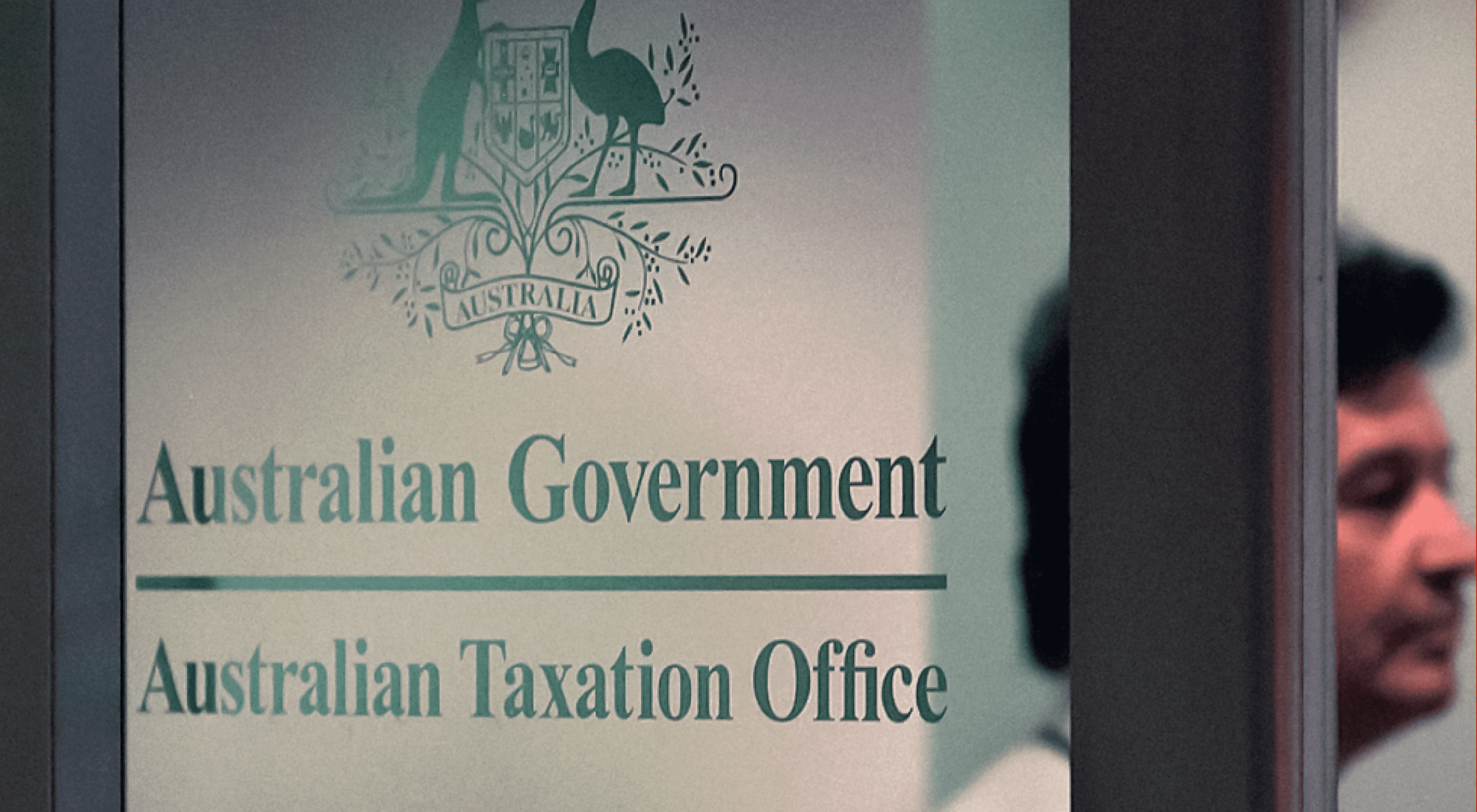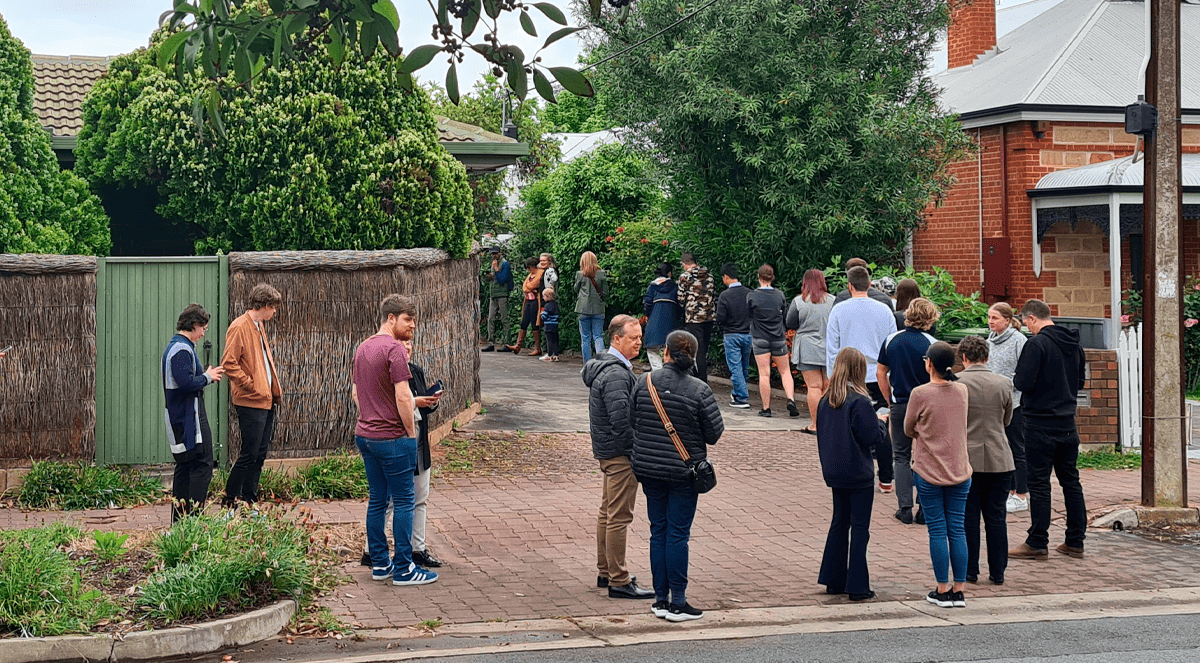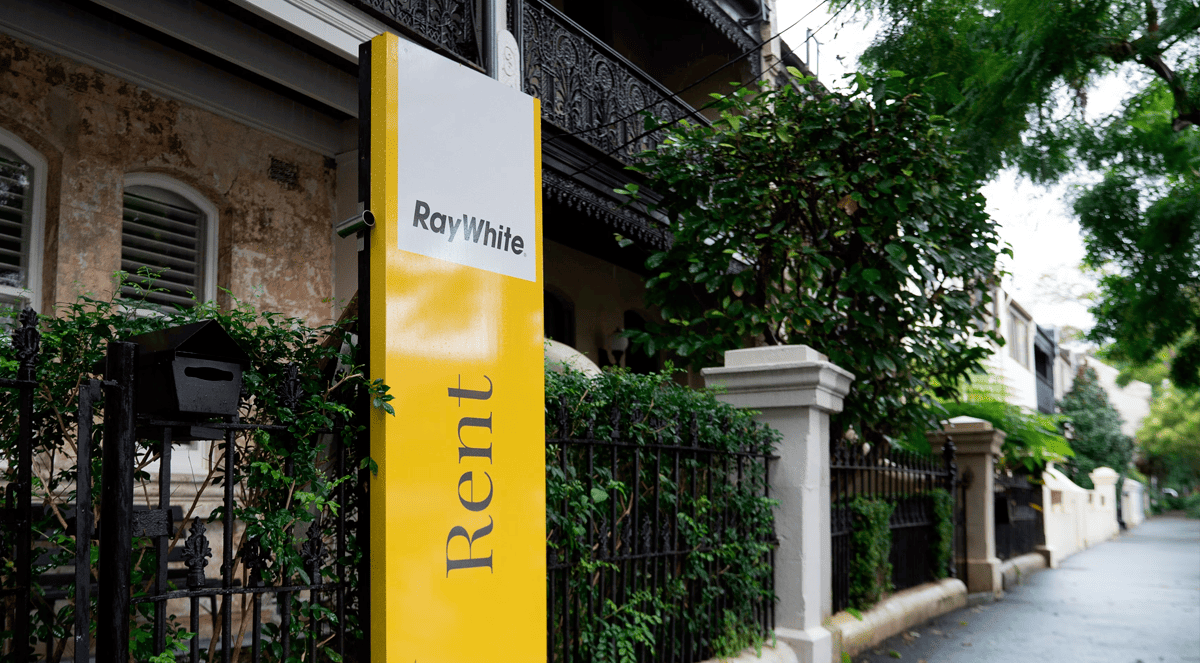Features > Property News & Insights > Financial Advice
Are you getting all the property tax deductions you're entitled to?

KEY POINTS
- Investors should treat their property portfolio as a business, employing a good accountant to help prepare tax returns, and taking full advantage of legitimate tax deductions
- Experts say a majority of property investors are not claiming depreciation deductions that they are actually entitled to, worsening their cash flow position
- Depreciation on buildings and fittings can be the second largest tax deduction after mortgage loan interest for property investors
It’s the end of the financial year.
Bricks-and-mortar and online shopping stores are busy promoting EoFY sales.
And, as regularly as clockwork, there are the usual warnings from the Australian Taxation Office (ATO) about all the things they are supposedly cracking down on each year.
Inevitably, this will always include “paying special attention” to property investors.
It happened again this year.
“We often see landlords making mistakes when it comes to repairs and maintenance deductions on rental properties, so we’re keeping a close eye on this,” ATO assistant commissioner Rob Thomson was quoted as saying in a press release from the government agency, which made the astonishing claim that 9 out of 10 rental property owners get their income tax returns wrong.
“This year, we’re particularly focused on claims that may have been inflated to offset increases in rental income to get a greater tax benefit.”
My advice is don’t let this noise distract from what is really important; making sure you take full advantage of the substantial tax benefits property investment in Australia provides.
Treat it as a business
The reason property investment in Australia attracts such generous tax treatment—particularly when compared to other asset classes—is really down to what’s essentially an unspoken bargain.
Governments decided long ago to withdraw from funding affordable public and social housing at scale.
Once upon a time, about a third of rental properties were built and maintained by governments.
Not any more.
These days, over 90% of rental homes in Australia are owned by private individuals—so-called “Mum and Dad investors,” with the majority of these individuals owning just one investment property.
To keep adequate rental housing available, it’s necessary for governments to offer significant tax advantages and concessions to property investors, like negative gearing, capital gains tax discounts, depreciation, and so on.
However, many investors miss out on many legitimate tax deductions because people don’t treat their investment as if it were a business.
While the ATO likes to talk tough about cracking down on property investors, the fact remains that if you are thorough and have a good accountant, your investment property should provide you with a substantial tax saving each year—even if you are “positively” geared.
The ATO’s own figures show that in the 2021-22 financial year, 831 (or 31%) of the 2,713 largest companies in Australia paid no tax at all.
The reason?
They were thorough, claimed every penny of business expenses they could and employed good accountants.
It’s astonishing the number of people who attempt to save a few dollars trying to compile and lodge complicated tax returns themselves.
Tax agent’s fees are totally tax deductible, and a good accountant will probably find legitimate deductions for work and your investments that you hadn’t even thought of.
If you ran a successful small business, you would probably get a well-credentialed accountant to help with all the paperwork, so it’s a good idea to treat your property investment portfolio in the same way.
Cash-flow and depreciation
One of the most common reasons property investors get into trouble is cash flow.
They get in a position where their outgoings on their investment property (mortgage payments, strata fees, council rates, repairs) aren’t being adequately covered by the incoming rent.
Depreciation experts Duo Tax suggest two ways to overcome this cash-flow problem:
The first is to improve the structure of any investment loan you hold.
“Speaking to your lender or a mortgage broker can potentially save you thousands in interest per year and boost that cash flow, leading to a more positively-geared property,” the company founded by Sydney property investor Tuan Duong says.
The second is through a tax depreciation schedule.
This provides “a non-cash deduction available from the Australian Tax Office to provide tax relief to the property investor.”
“The schedule produced by a Registered Tax Agent that is a practising Quantity Surveying will substantiate claims made by the investor on how much depreciation has been incurred during the time of ownership,” Duo Tax says.
ATO rule changes in 2017 curbed some of the benefits of tax depreciation, particularly when investors buy established, not brand-new homes.
However, another property specialist, BMT Tax Depreciation, claims even established properties can still deliver investors an average $6,348 deduction in the first year they receive their tax depreciation schedule.
“I would say 70-75% of investors are not maximising this deduction properly,” BMT chief executive Bradley Beer says.
According to The Australian newspaper’s Personal Finance writer Anthony Keane, “Depreciation deductions—for a home’s construction cost and the declining value of things including carpets, curtains, furniture, and appliances—are usually a property investor’s second-largest tax deduction after loan interest.”
Anthony Keane also points out that the latest available ATO statistics (for the financial year 2020-21) “show that of the 3.31 million rental property schedules filed by taxpayers, less than two-thirds included depreciation deductions for household items, while less than half included capital works deductions.”
We hear lots of stories in the media about people who make dodgy tax claims for everything from holidays to Bali to trying to write off renovations to their own homes against investment properties.
However, the simple fact is that the majority of property investors in Australia are ignoring legitimate tax deductions, worsening their all-important cash flow position.
As BMT Tax Depreciation’s Bradley Beer says, “You invest in property to make money—don’t leave your money at the tax office.”
Stay Up to Date
with the Latest Australian Property News, Insights & Education.




.png?width=292&height=292&name=Copy%20Link%20(1).png)
 SIGN UP FOR FREE NEWSLETTER
SIGN UP FOR FREE NEWSLETTER


.png)




%20Scott%20Kuru%20DPU%20141.jpg?width=1920&height=1080&name=The%20Senate%20Just%20Exposed%20Australias%20Biggest%20$80%20Billion%20Housing%20Fraud%20(Inquiry%20Launched)%20Scott%20Kuru%20DPU%20141.jpg)





%20Scott%20Kuru%20DPU136.jpg?width=1920&height=1080&name=Aussies%20Just%20Got%20Hit%20With%20Double%20Taxes%20on%20Everything%20(This%20Has%20Gone%20Too%20Far)%20Scott%20Kuru%20DPU136.jpg)


%20Scott%20Kuru%20DPU%20133.jpg?width=1920&height=1080&name=JUST%20IN%20Something%20Major%20Just%20Flipped%20Australia%E2%80%99s%20Property%20Market%20for%202026%20(No%20One%20Saw%20This%20Coming)%20Scott%20Kuru%20DPU%20133.jpg)


.jpg?width=1920&height=1080&name=Rental%20Prices%20At%20Record%20Highs%20And%20Vacancy%20Rates%20At%20All%20Time%20Lows%20(New%20Data%20Reveals).jpg)
%20%20DPU%20EP%2014.jpg?width=1920&height=1080&name=Investors%20Shutting%20Out%20First%20Home%20Buyers%20(Investors%20At%20Record%20Highs)%20%20DPU%20EP%2014.jpg)

.jpg?width=1920&height=1080&name=Darwins%20Property%20Market%20Boom%20or%20Dangerous%20Gamble%20(REVEALED).jpg)

.jpg?width=1920&height=1080&name=The%20RBA%E2%80%99s%20Rate%20Cut%20Could%20Explode%20House%20Prices%20(Here%E2%80%99s%20Why).jpg)








.jpg?width=1920&height=1080&name=Warning%2c%20You%20Might%20Be%20Facing%20Higher%20Taxes%20Soon%20(1).jpg)




.png?width=1920&height=1080&name=Rate%20Drops%20Signal%20BIGGEST%20Property%20Boom%20in%20DECADES%20(1).png)

.jpg?width=1920&height=1080&name=Labor%20vs%20Liberal%20These%20Housing%20Policies%20Could%20Change%20the%20Property%20Market%20Forever%20(1).jpg)
.jpg?width=1920&height=1080&name=QLD%20Slashes%20Stamp%20Duty%20Big%20News%20for%20Investors%20%26%20Home%20Buyers%20(1).jpg)
.jpg?width=1920&height=1080&name=Trump%20Just%20Slapped%20Tariffs%20%E2%80%93%20Here%E2%80%99s%20What%20It%20Means%20for%20Australia%20(1).jpg)
.jpg?width=1920&height=1080&name=Federal%20Budget%202025%20More%20Debt%2c%20No%20Housing%20%E2%80%93%20Here%E2%80%99s%20What%20You%20Need%20to%20Know%20(1).jpg)
.jpg?width=1920&height=1080&name=Australias%20Housing%20Crisis%20is%20about%20to%20get%20MUCH%20Worse%20(New%20Data%20Warns).jpg)
%20(1).jpg?width=1920&height=1080&name=Australias%20RENTAL%20CRISIS%20Hits%20ROCK%20BOTTOM!%20(2025%20Update)%20(1).jpg)
%20(1).png?width=1920&height=1080&name=Is%20Adelaide%20Still%20a%20Good%20Property%20Investment%20(2025%20UPDATE)%20(1).png)
.jpg?width=1920&height=1080&name=RBA%20Shocks%20with%20Rate%20Cuts!%20What%E2%80%99s%20Next%20for%20Property%20Investors%20(1).jpg)
%20(1).jpg?width=1920&height=1080&name=I%20Predict%20The%20Feb%20Rate%20Cut%20(My%20Price%20Growth%20Prediction)%20(1).jpg)
.png?width=1920&height=1080&name=Why%20Property%20Prices%20Will%20Rise%20in%202025%20Market%20Predictions%20(1).png)
.jpg?width=1920&height=1080&name=Why%20Investors%20Are%20Choosing%20Apartments%20Over%20Houses%202%20(1).jpg)
.jpg?width=1920&height=1080&name=Why%20Rate%20Cuts%20Will%20Trigger%20A%20Property%20Boom%20(1).jpg)
.jpg?width=1920&height=1080&name=Retire%20On%202Million%20With%20One%20Property%20(Using%20SMSF).jpg)
.jpg?width=1920&height=1080&name=4%20Reasons%20Why%20You%20Should%20Invest%20in%20Melbourne%20Now%20(1).jpg)
%20(1).jpg?width=1920&height=1080&name=Old%20Property%20vs%20New%20Property%20(Facts%20and%20Figures%20Revealed)%20(1).jpg)
%20(1).jpg?width=1920&height=1080&name=Will%20The%20New%20QLD%20Govt%20Create%20a%20Property%20Boom%20or%20Bust%20(My%20Prediction)%20(1).jpg)
%20Scott%20Kuru%20(1).jpg?width=1920&height=1080&name=Inflation%20Hits%20Three-Year%20Low%20(Will%20RBA%20Cut%20Rates%20Soon)%20Scott%20Kuru%20(1).jpg)
.jpg?width=1920&height=1080&name=How%20to%20Buy%20Investment%20Property%20Through%20SMSF_%20The%20Ultimate%20Guide%20(1).jpg)
.jpg?width=1920&height=1080&name=Victoria%20Slashes%20Stamp%20Duty%20Melbourne%20Set%20to%20Boom%20Scott%20Kuru%20(1).jpg)
.png?width=1571&height=861&name=Are%20Foreign%20Buyers%20Really%20Driving%20Up%20Australian%20Property%20Prices%20(1).png)
.jpg?width=1920&height=1080&name=The%20Single%20Factor%20That%20Predicts%20Property%20Growth%20Regions%20(1).jpg)
%20Scott%20Kuru%20(1).jpg?width=1920&height=1080&name=My%20Prediction%20On%20Rates%20%26%20Negative%20Gearing%20(Market%20Crash)%20Scott%20Kuru%20(1).jpg)

-1.png?width=1920&height=1080&name=Major%20Banks%20Cut%20Rates%20Will%20RBA%20Follow%20Suit%20(Sept%20Rate%20Update)-1.png)
%20Scott%20Kuru-1.png?width=1920&height=1080&name=Rate%20Cut%20Coming%20What%20New%20Zealands%20Move%20Means%20for%20Australia%20(Sept%20Prediction)%20Scott%20Kuru-1.png)
%20(1).jpg?width=1920&height=1080&name=Buy%20when%20the%20interest%20rates%20are%20high!%20(Why%20you%20must%20buy%20now!)%20(1).jpg)
.jpg?width=1920&height=1080&name=Carms_Revised%20Taxes%20Due%20Aug%209%20YT%20Thumbnail02%20(1).jpg)
.jpg?width=1920&height=1080&name=Carms_Too%20Little%20Too%20Late%20Aug%207%20YT%20Thumbnail01%20(1).jpg)









.jpg?width=1920&height=1080&name=Carms_Rate%20Drop%20In%20July%20Jun%2010%20YT%20Thumbnail02%20(1).jpg)
.jpg?width=1920&height=1080&name=Carms_Own%20a%20Property%20V6%20Jun%205_YT%20Thumbnail%20(1).jpg)









.png?width=1920&height=1080&name=Artboard%201%20(3).png)






.jpg?width=1920&height=1080&name=YT%20thumbnail%20%20(1).jpg)

